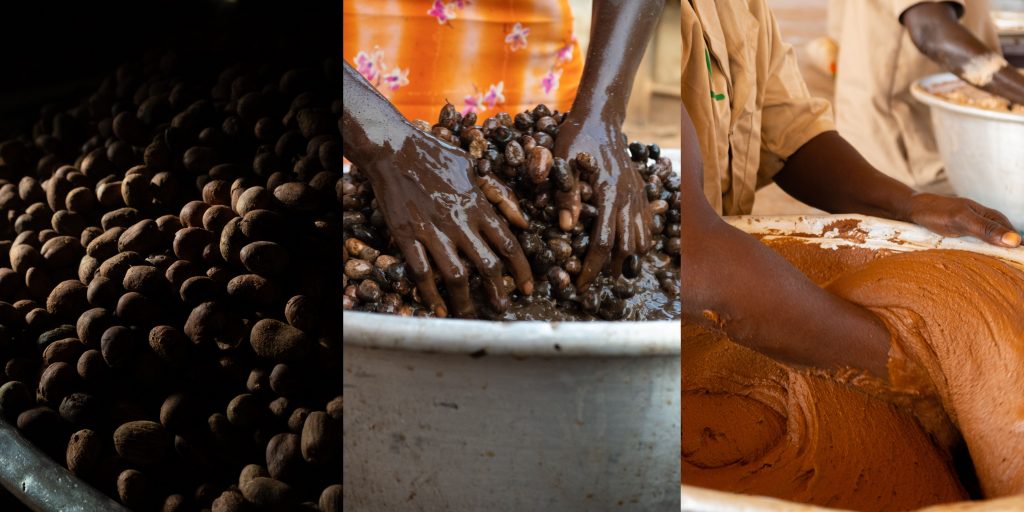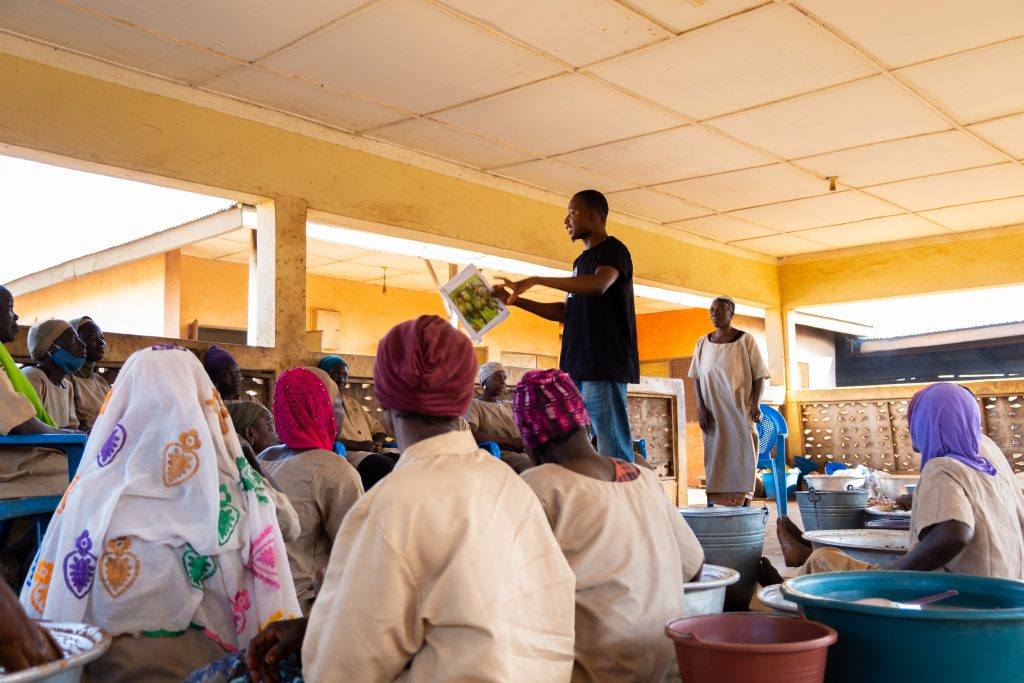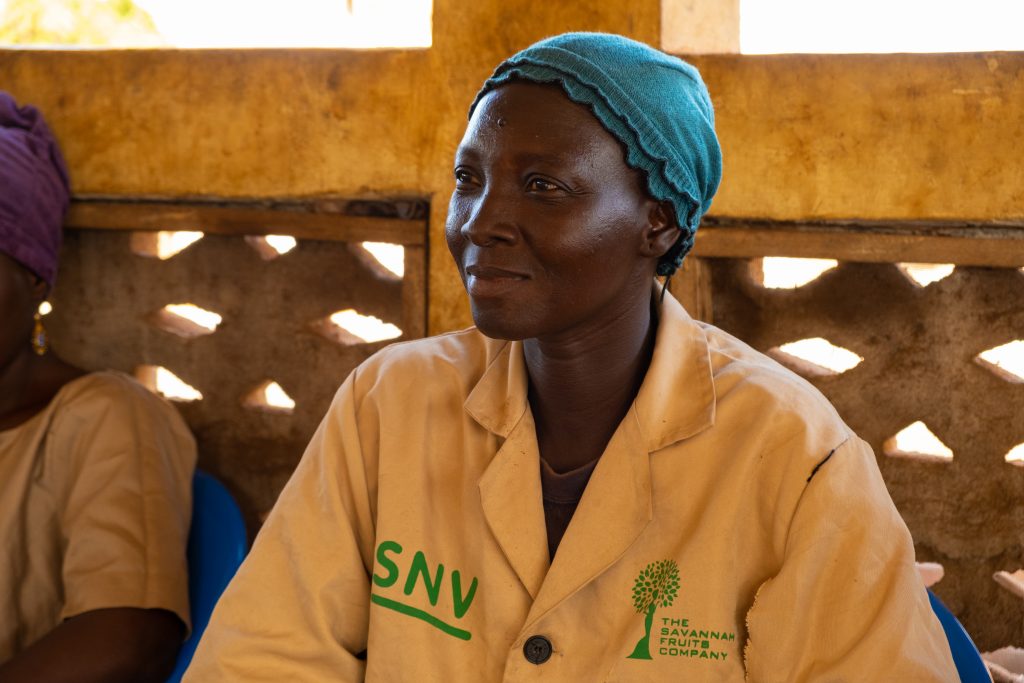Savannah Fruits Company Achieving Equity in the Shea Value Chain
Rahma Alhassan dips her hands into a silver pan filled with hundreds of shea nuts. She is surrounded by other women from her community, all conversing animatedly as they are entering the compound, gracefully balancing loaded pans, carefully washing the nuts, rhythmically kneading shea paste.
Rahma has worked in the shea business for13 years and is now a member of the Sughlo Mbor Bini shea cooperative in Tamale in northern Ghana.
The process of transforming shea nuts into the coveted shea butter is arduous and requires meticulous work. Rahma dabs her forehead, beading sweat in the harmattan heat, and her hands deftly move the nuts from the pan onto jute sacks to dry. In about a week, they will be ready to crack, boil, and knead into the smooth paste from which the butter is extracted.
Rahma is one of millions of women across West Africa who earn their living through the shea trade. Shea butter is a crucial ingredient in the food and beauty industries, with the market for the product estimated to be worth $1.6 billion by 2030.

For generations, women in northern Ghana have been collecting and processing shea nuts. Using traditional techniques, they handcraft shea butter, a product prized throughout the world.
While shea is a prized commodity, the rural women who make up the industry’s workforce are often unable to reap its benefits. For women working on their own, it can take up to a month to produce a high-quality batch of shea butter, with no guaranteed buyers and a very low price in the open market. While churning batches and batches of the butter—termed “women’s gold”—some of these skilled processors struggle to make a living wage. Traditional shea processing also requires extensive manual labor, including boiling nuts over an open fire, carrying the risk of burn injuries and the unsafe levels of smoke exposure leaving the women susceptible to adverse health conditions as they age.
SUPPORTING EQUITY IN THE SHEA VALUE CHAIN
As the shea industry has expanded, more and more companies have stepped in to provide links between shea nut collectors and processors in West Africa and large buyers in the United States and Europe. These companies have helped to facilitate the gathering of individual shea collectors and processors into cooperatives, providing them more bargaining power for their product and access to trainings, improved processing facilities, and more.
One such company is the Savannah Fruits Company (SFC), headquartered in Tamale, Ghana. SFC established itself as a buyer of shea nuts and set up cooperatives of women who handcrafted shea butter using traditional techniques. By buying and processing nuts into butter, not only during shea season, but consistently throughout the year, the company provides the women in the cooperatives a reliable, year‑round income.
SFC has operated in the region for 16 years and now works with more than 15,000 women in Ghana. The company is also setting up shea cooperatives in Côte d’Ivoire.
To support SFC’s contribution to equity in the shea value chain, in October 2021 the USAID-funded West Africa Trade & Investment Hub (Trade Hub) awarded SFC a co-investment grant of $1.47million.

Rahma Alhassan and other women in her shea cooperative receive training from SFC, with topics ranging from best practices for contamination-free shea processing to financial literacy.
Through their Trade Hub partnership, SFC is able to continue to work with thousands of women in cooperatives across northern Ghana, providing them a stable, comfortable income.
Additionally, SFC provides several cooperatives with trainings on organic and fair-trade principles throughout the year, allowing the women to draw a higher price for their products.
Rahma is realizing the impact of applying this training, allowing her mastery of shea processing to bring an increased, reliable income, a more fitting return for her level of effort, experience, and expertise.

“Before, the situation was not good. Every little problem was hard to solve,” remarks Rahma, speaking about her income before joining the cooperative. “But now, I am thankful. If I need something, I can easily get it without any assistance.” Through SFC’s USAID-funded project, Rahma, who has four children, is paying for her oldest child to attend nursing school and looks forward to building a home for her family that they can call their own.

